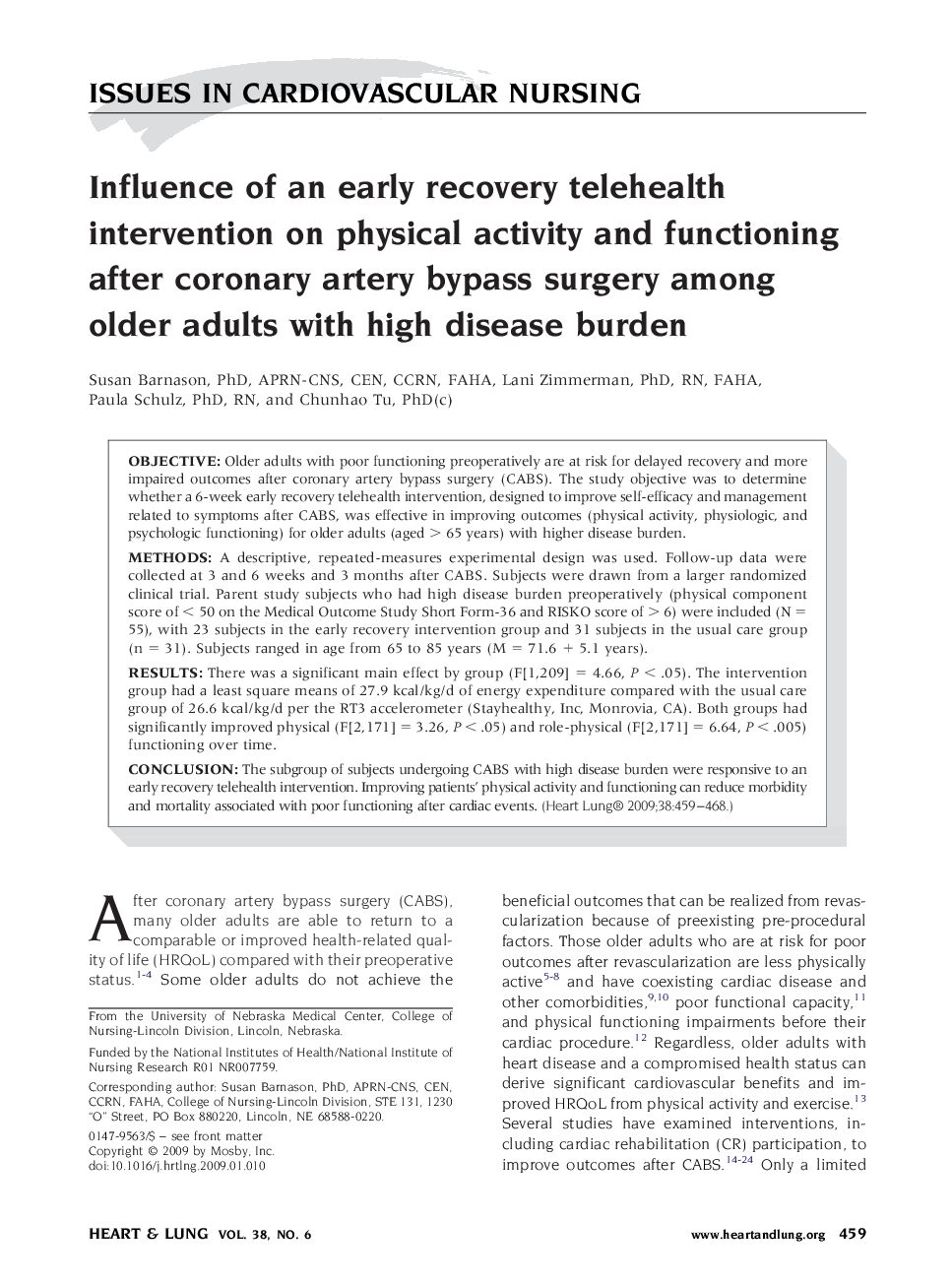| Article ID | Journal | Published Year | Pages | File Type |
|---|---|---|---|---|
| 2651655 | Heart & Lung: The Journal of Acute and Critical Care | 2009 | 10 Pages |
ObjectiveOlder adults with poor functioning preoperatively are at risk for delayed recovery and more impaired outcomes after coronary artery bypass surgery (CABS). The study objective was to determine whether a 6-week early recovery telehealth intervention, designed to improve self-efficacy and management related to symptoms after CABS, was effective in improving outcomes (physical activity, physiologic, and psychologic functioning) for older adults (aged > 65 years) with higher disease burden.MethodsA descriptive, repeated-measures experimental design was used. Follow-up data were collected at 3 and 6 weeks and 3 months after CABS. Subjects were drawn from a larger randomized clinical trial. Parent study subjects who had high disease burden preoperatively (physical component score of < 50 on the Medical Outcome Study Short Form-36 and RISKO score of > 6) were included (N = 55), with 23 subjects in the early recovery intervention group and 31 subjects in the usual care group (n = 31). Subjects ranged in age from 65 to 85 years (M = 71.6 + 5.1 years).ResultsThere was a significant main effect by group (F[1,209] = 4.66, P < .05). The intervention group had a least square means of 27.9 kcal/kg/d of energy expenditure compared with the usual care group of 26.6 kcal/kg/d per the RT3 accelerometer (Stayhealthy, Inc, Monrovia, CA). Both groups had significantly improved physical (F[2,171] = 3.26, P < .05) and role-physical (F[2,171] = 6.64, P < .005) functioning over time.ConclusionThe subgroup of subjects undergoing CABS with high disease burden were responsive to an early recovery telehealth intervention. Improving patients' physical activity and functioning can reduce morbidity and mortality associated with poor functioning after cardiac events.
